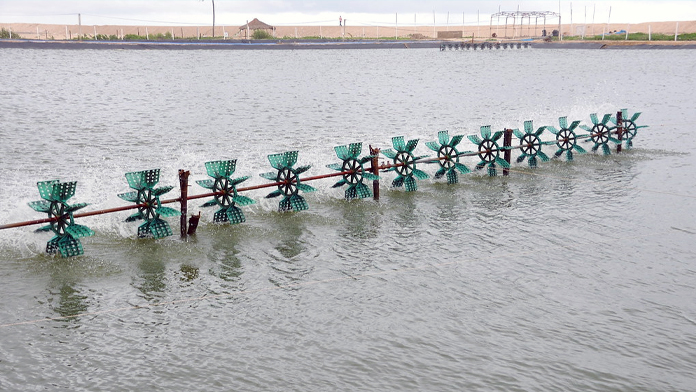Exclusive content

Fish plays a crucial role in ensuring food security in Ghana, accounting for approximately 60% of animal protein intake with an estimated consumption of 26 kg per capita per year. However, declining fish harvests have created a gap between supply and demand, prompting the need for alternative solutions. The aquaculture sector, particularly the cage culture of tilapia in the Volta Lake and lower Volta River, has been steadily growing. In 2013, the industry reported a production of 32,500 tonnes, marking an 18% increase from the previous year.
As the aquaculture industry becomes more established, there is a growing urgency to diversify both in terms of species and technologies. Among the promising candidates for farming in freshwater and brackish water environments, marine shrimps stand out as having substantial potential. Ghana’s vast undeveloped estuarine, coastal, and saline flood plains present an opportunity for shrimp farming to thrive.
Ghavie Aquaculture, established in 2013, holds the distinction of being Ghana’s pioneer shrimp farm. Founded by Ghanaian and Vietnamese partners, the farm is located at Ada Foah, just west of the Volta River’s mouth, benefiting from excellent water quality. The farm draws seawater through a 350m pipeline, creating an optimal environment for shrimp cultivation.
The black tiger shrimp was chosen for cultivation due to its high demand in potential export markets. Referred to locally as “bolu” (Ewe), “monkƆ” (Twi), and “son” (Gã), gravid female shrimp are sourced from fisherfolk on the adjacent beach using beach seines. A 200g female with approximately two million eggs costs around 30 USD.
The hatchery at Ghavie Aquaculture mirrors the successful models found in major shrimp farming industries in Vietnam. The facility, equipped with 34 concrete tanks, has the capacity to produce post-larval shrimps for stocking 500 hectares of ponds. The first batch of shrimp, hatched in December 2013, showcased a successful pilot, with over 12 metric tonnes harvested after a five-month grow-out period using Royal Dragon monodon feeds.
Encouraged by this initial success, Ghavie Aquaculture is now seeking significant investment to expand production to 50 hectares of ponds. High electricity costs have prompted the search for a new site with gravity-fed water supply. This expansion aims to meet the demand for shrimp in the European Union and North America. Notably, tiger shrimp, in relative short supply due to disease issues in major exporting countries in Asia, present an opportunity for Ghana to become a key player in the international shrimp market.